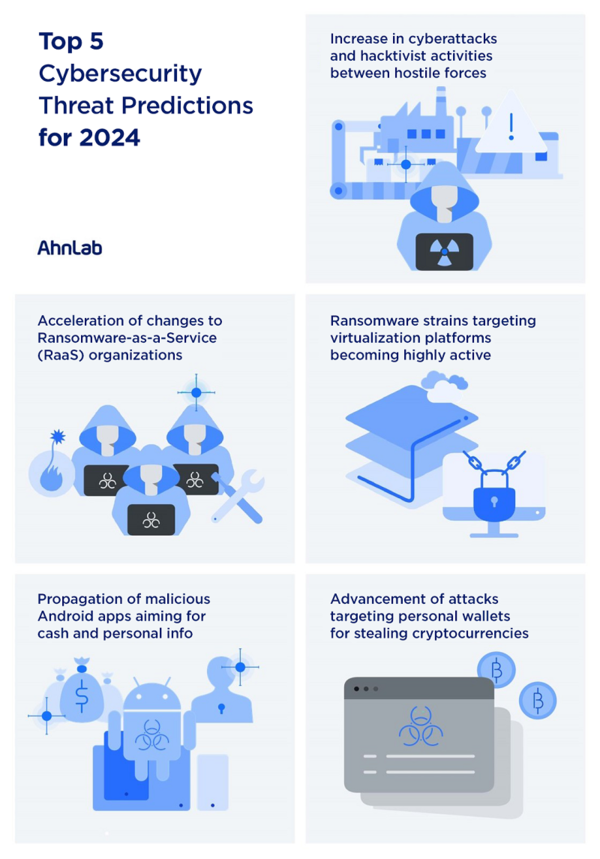Korean tech giant expects increased cyberattacks this year

South Korea’s cybersecurity giant AhnLab expected on Jan. 3 that cyberattacks and hacker activities between hostile forces would increase across the world this year.
On top of that, AhnLab came up with the top five cybersecurity threat predictions for 2024, involving ransomware, malicious Android apps, and attacks targeting personal wallets.
Most of all, AhnLab said that global conflicts in ideologies, religions, and various interests would lead to more cyberattacks employing unscrupulous methods.
“They may use deepfake technology to create fake news for propaganda or falsely claim that the data exfiltrated in the past are the results of new hacking incidents,” AhnLab said.
“State-backed threat groups may not only launch attacks to extort information from opposing forces but also aim to cause an outage of infrastructures such as electricity supply systems.”
The recent crackdowns of law enforcement authorities against cybercrimes are likely to result in changes in ransomware-as-a-service (RaaS) organizations.
The organization refers to a new ransomware business model where a cybercriminal provides the tools and services necessary for distributing and managing ransomware.
In other words, ransomware is getting more sophisticated, and even an individual criminal without expertise in technology is feared to take advantage of ransomware.
“RaaS organizations are expected to make various changes to upkeep their ecosystem. They may accelerate their ‘rebranding’ processes where they switch between forums and markets on the dark web and change their names,” the firm said.
“RaaS organizations are also likely to employ ‘multi-ransomware’ tactics such as using variants of other RaaS organizations’ ransomware strains to render tracking by investigative agencies difficult and use them as a backup measure when attacks fail.”

